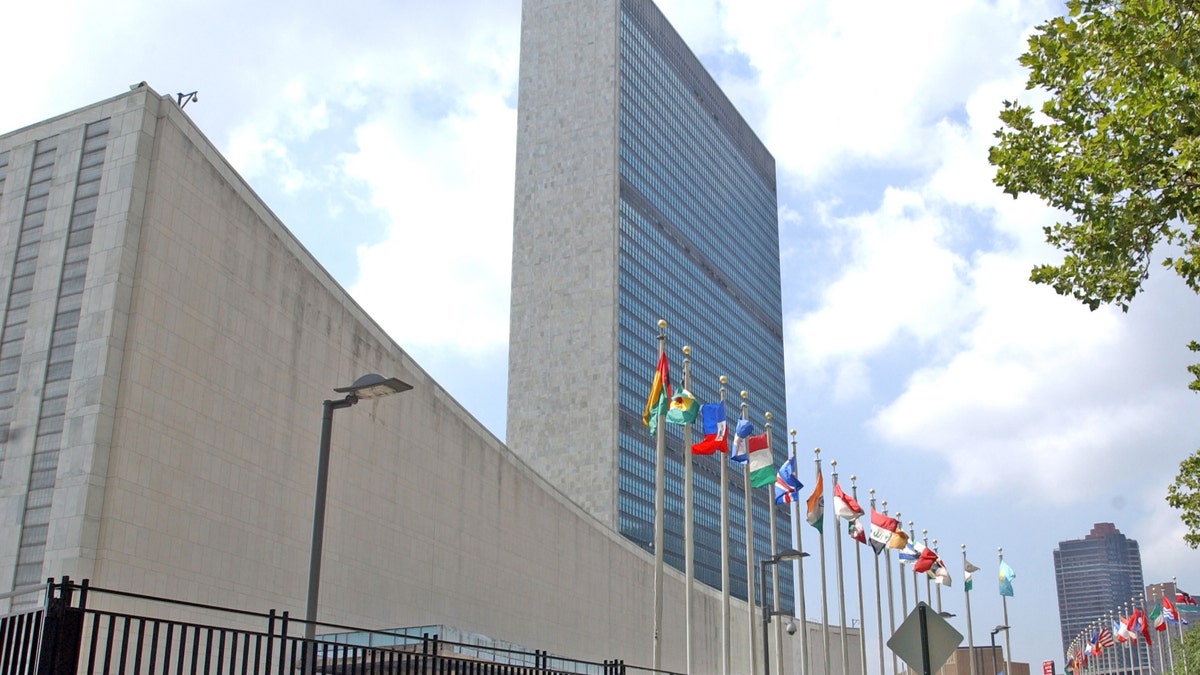
United Nations Headquarters in Manhattan. (AP)
For nearly two decades, U.N.-mandated peacekeepers – both military and non-military personnel – have been embroiled in sexual abuse scandals that have shocked the world, tarnished the U.N.’s reputation, and shattered uncounted vulnerable lives.
The U.N. has announced one effort after another to fix this ugly problem, but so far, nothing much has changed—which is why we need a radically new approach.
Quite simply, the U.N. needs to get out of the business of policing itself.
Under the current system, victims are instructed to bring criminal complaints against U.N. peacekeepers to the U.N. itself. From this point forward, the process is characterized by a depressing lack of impartiality and transparency.
The cases may be handled merely as as an administrative matter (for a non-military U.N. official) or tried in a courtroom thousands of miles from the crime scene (for a soldier.) Either way, the victim is rarely involved or even informed, and basic principles of justice are contravened.
At the root of the problem is the fact that U.N. has no legal authority to investigate or prosecute crimes; nor should it. Yet it acts as police, prosecutor, judge and jury—to itself.
The frequent result: nothing much is done to punish or prevent these offenses, or to help the victims, and the U.N. gets a well-earned reputation for its culture of impunity surrounding sexual abuse.
Just last week, the Associated Press (with behind-the-scenes help from our Code Blue Campaign) cited an internal U.N. report revealing that 134 Sri Lankan peacekeepers exploited nine children in a sex ring from 2004 to 2007. In the wake of the U.N. report, 114 peacekeepers were quietly sent home. None was ever imprisoned.
In response to the AP report, Nikki Haley, the U.S. ambassador to the U.N., urged all countries that provide troops for peacekeeping missions to hold soldiers to account. That sound principle should go one important step further: accountability must also apply to non-military peacekeepers.
The U.N.’s new Secretary-General, António Guterres, appears to understand the magnitude of the crisis. But his own “game-changing” strategy to deal with abuse is a variation on the old theme: crimes committed by the U.N. are reported to the U.N., and handled as internal matters.
Instead, we think the U.N. needs a new and independent judicial mechanism, created and overseen by U.N. member states and existing outside the apparatus overseen by the Secretary-General.
The special court would be empowered to receive and rapidly investigate allegations of sexual abuse, adhering to uniform and rigorous investigative standards.
If an accusation against a military peacekeeper is deemed credible, the case would be referred, as required by international agreement, to the peacekeeper’s home country, which would be responsible for carrying the investigation further.
But if non-military U.N. officials were credibly accused of crimes, the special court would try the case—and there could be plenty of them.
Few people are aware that roughly half of the sexual abuse allegations in U.N. peacekeeping missions involve non-military personnel. And they are held to an even less accountable standard than soldiers.
A non-military U.N. official suspected of sexual crimes is subject to little more than an administrative review. For most staff, the worst they need fear is losing their jobs.
The new court would change that. It would collect and preserve evidence; conduct pre-trial judicial examination; prosecute cases while respecting due-process guarantees; impose criminal sentences when there was a guilty verdict; and provide an appeals process to ensure that decisions are fair.
The court would remove the U.N.’s biggest taint: its conflict of interest when investigating crimes committed by its own personnel.
Further, the proposal would allow the United Nations to get back to work that is so needed in our troubled times -- bringing peace and stability to the world, and protecting the most vulnerable.
Not a moment should be wasted in changing the U.N.’s unworkable system. Far too many vulnerable lives are at stake.
